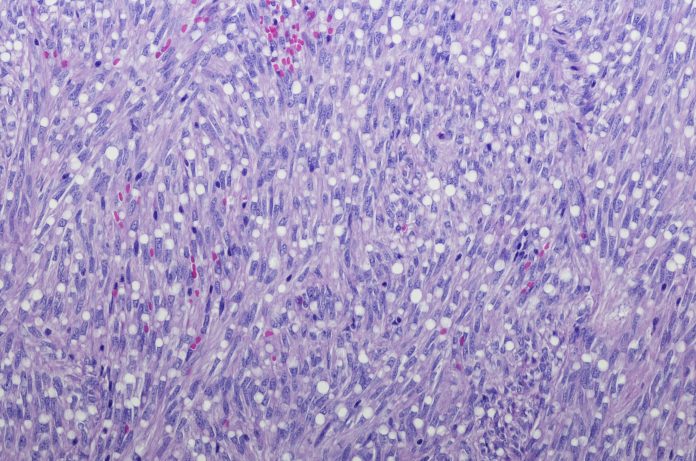
Inspired by the combination therapeutic approaches taken in toward the treatment of such disease as HIV and cystic fibrosis, clinical-stage biopharmaceutical company IDRx announced it is emerging from stealth mode with a $122 million Series financing led by Andreessen Horowitz (a16z) and Casdin Capital. The company, which was incubated by Borisy Labs, aims to develop targeted combination therapies for the treatment of cancer and already counts two candidates in its pipeline, IDRX-42 and IDRX-73, small molecule tyrosine kinase inhibitors (TKIs) acquired through license agreements with Merck KGaA and Blueprint Medicines, respectively, which the key genetic drivers and drug-resistant mutations of non-PDGFR-driven gastrointestinal stromal tumor (GIST).
“Although precision medicines have revolutionized the treatment of some cancers, tumors can evolve multiple escape mutations,” said Alexis Borisy, co-founder of IDRx. “At IDRx, we are leveraging deep scientific insights in tumor biology with now available drug engineering capabilities to pioneer novel, selective, intelligently designed combination therapies that aim to hit driver mutations hard, cover escape pathways and provide sufficient therapeutic index and safety profiles for use in early lines of treatment where there is the best potential to provide patients with durable clinical benefits.”
According to the company’s website, IDRx will seek to develop medicines that address what it sees as three fundamental fundamental limitations of current therapeutic approaches: drugs that don’t “hit” the primary driver hard enough, due to side effects limiting doses; mutations that allow cancer to develop ways to evade targeted therapies; and that in late-stage disease cancer has too many mutations for a precision medicine approach.
For IDRx, that translates into creating more potent targeted therapeutics that are engineered to avoid toxicities and ones that can be applied earlier in the disease—drugs that address both the drivers of early disease, along with known resistance mutations. If successful, the company envisions developing best-in-class, single-agent drugs.
Of the two drugs in development, the company recently launched a Phase I first-in-human study of IDRX-42, while IDRX-73 is currently advancing towards the clinic. IDRX-42 was also recently granted Orphan Drug designation by the FDA for the treatment of GIST.
IDRX-42 and IDRX-73 are both small molecule TKIs designed to inhibit the key genetic drivers and drug-resistant mutations of GIST. The company’s goal is for IDRX-42 to serve as a base of therapy for GIST patients, and combine it with IDRX-73 as combination treatment that may provide a “transformative” benefit.
“IDRx’s approach offers the opportunity to develop more effective cancer medicines for patients through intentionally built treatment combinations, and we are starting with gastrointestinal stromal tumor (GIST), where tumor biology is well known but, at the same time, there remains a high unmet medical need,” said Ben Auspitz, co-founder and CEO of IDRx. “We are proud to assemble this expert team of founders and leaders in precision medicine and in GIST, and to be launching as a clinical-stage company with our first-in-human study for IDRX-42 initiated. Our goal is to build de novo combinations to serve as transformative cancer treatments.”
The team assembled for the launch of IDRx which has deep experience in the biotech world. Co-founder Alexis Borisy is long-time biotech entrepreneur, a partner with Third Rock Ventures, and has been involved with other launches including Blueprint Medicines and EQRx, another biopharma launched in 2016. Co-founder and CEO Ben Auspitz, a partner in FPrime Capital similarly counts a number of biotech and pharma startups on his CV including Modis Therapeutics, Orchard Therapeutics, and Dimension Therapeutics.
Other founders include:
- George Demetri, M.D., FACP, FASCO, FAACR, professor of medicine and co-director of the Ludwig Center at Harvard Medical School; senior vice president for experimental therapeutics and director of the Sarcoma Center at Dana-Farber Cancer Institute
- Nicholas Lydon, Ph.D., pioneer in precision medicine and co-winner of the Lasker award for research contributing to the development of Gleevec (imatinib)
- Robert Forrester, co-founder and CXO of EQRx













